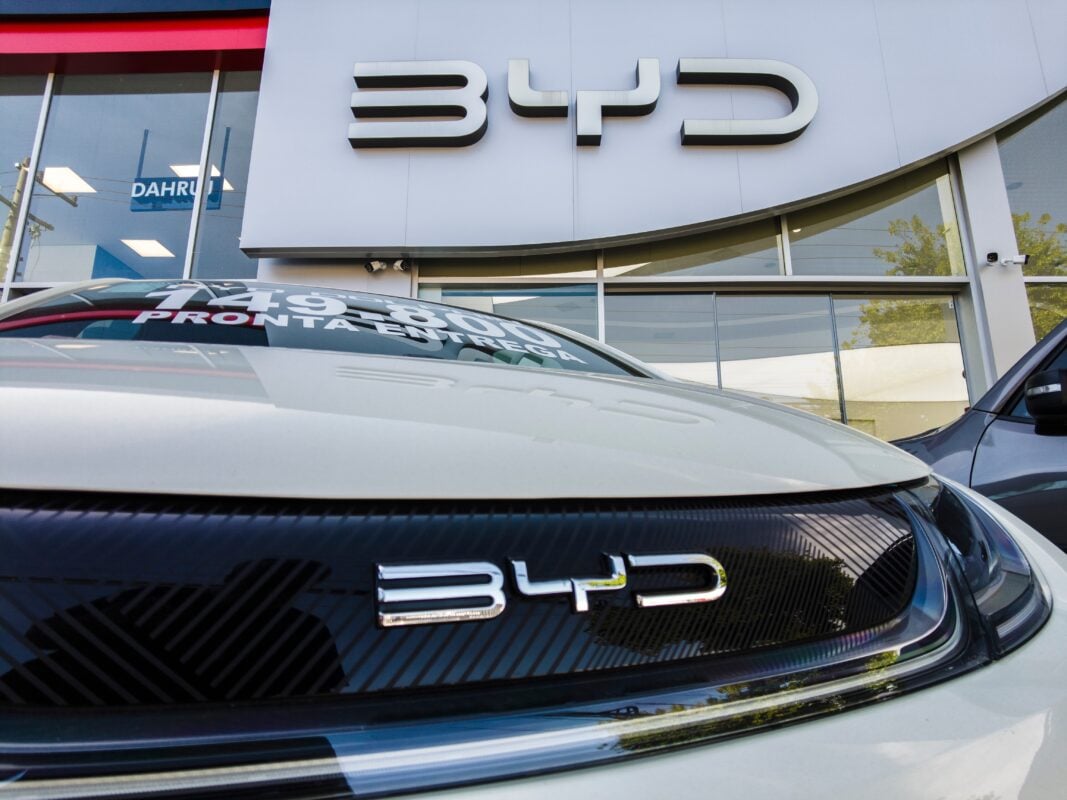TLDRs;
Contents
- BYD delivered 371,501 vehicles in August, up 22% year-on-year, despite reporting a 30% profit drop.
- Nio and Xpeng hit monthly records with new models, supported by heavy discounts in China’s EV price war.
- Leapmotor surged 88% year-on-year, while Li Auto and Huawei’s HIMA struggled with falling deliveries.
- Analysts warn that aggressive discounting risks long-term profitability, even as short-term sales momentum rises.
China’s electric vehicle (EV) industry recorded a sharp rebound in August deliveries, driven largely by steep discounts and aggressive model launches.
Leading automakers BYD, Nio, and Xpeng posted record sales, highlighting both the sector’s momentum and its deepening struggle with profitability.
BYD Surges Despite Profit Pressure
BYD, China’s largest EV manufacturer, shipped 371,501 vehicles in August, marking a nearly 22% year-on-year increase. While the sales surge reaffirmed BYD’s dominance in the market, the company faces an uncomfortable reality: profits are shrinking.
Its latest financial report revealed a 30% drop in net profit to 6.4 billion yuan ($900 million), despite record deliveries. The numbers underscore the challenge facing China’s EV makers, volume growth is being bought at the cost of eroding margins.
Nio and Xpeng Break Records with New Models
Rival automakers also benefited from fresh product launches. Nio delivered 31,305 vehicles, its highest monthly total to date, buoyed by its sub-brand Onvo, which accounted for 16,434 deliveries.
Similarly, Xpeng recorded 37,709 deliveries, a record month thanks to its newly launched P7 sedan. Both companies leaned on discounted pricing strategies to lure cost-conscious buyers in a highly competitive market.
Smaller but fast-growing competitors also joined the rally. Leapmotor hit an all-time high with 57,066 deliveries, surging 88% year-on-year, propelled by its B01 model. Meanwhile, Xiaomi matched its July performance with over 30,000 units, while Geely’s Zeekr rose slightly to 17,626 deliveries.
Winners and Losers in August
Not all EV players shared in the upswing. Li Auto’s deliveries fell for the third consecutive month, dropping to 28,529 units. The decline followed controversy surrounding a collision test video that cast doubts on the brand’s safety standards.
Similarly, the Huawei-backed Harmony Intelligent Mobility Alliance (HIMA) reported 44,579 units sold, down from July, reflecting uneven performance across the sector.
Despite individual setbacks, the overall picture shows strong demand for affordable EVs in China. Average car prices have fallen by roughly 19% over the past two years, with current averages hovering around 165,000 yuan ($23,100). This trend has widened consumer access but raised sustainability concerns for manufacturers.
Growth Fueled by Discounts, But at a Cost
Industry analysts warn that the recent rebound may mask deeper structural issues. The aggressive price war has slashed profitability across the board, creating what many see as unsustainable economics. With nearly 500 EV manufacturers competing, oversupply remains a significant challenge.
Moreover, automakers appear largely unfazed by government calls to rein in discounts. Data shows promotion levels in July 2025 were higher than the prior year, indicating companies are prioritizing survival and market share over regulatory guidance. This defiance highlights the extent to which market forces have overwhelmed policy intervention.


